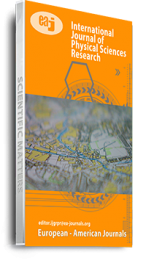This paper examines the integration of traditional knowledge systems and cultural beliefs into climate adaptation strategies in Nigeria’s arid regions, aiming to enhance food security and promote sustainable development. Arid regions, characterized by low precipitation and high evapotranspiration rates, are particularly vulnerable to climate variability and extremes. Effective adaptation strategies must blend indigenous wisdom with modern scientific approaches. Indigenous communities in Nigeria’s arid zones have developed resilient adaptation practices rooted in Traditional Ecological Knowledge (TEK). These include agroforestry, transhumance pastoralism, and indigenous soil and water conservation techniques, crucial for sustaining livelihoods and enhancing ecosystem resilience against desertification, soil degradation, and water scarcity. The study underscores the significant role of cultural beliefs and religious practices in shaping community responses to environmental challenges. Religious teachings often emphasize stewardship of natural resources and community solidarity, influencing behaviours that support sustainable land use and environmental conservation. Integrating these cultural elements with climate-smart agriculture and sustainable land management practices highlights synergies between traditional and scientific approaches. Methodologically, the study synthesis studies that employed qualitative research methods such as in-depth interviews, Participatory Rural Appraisal (PRA), bibliometric and geospatial analysis. These approaches capture diverse perspectives from community leaders, agro-pastoralists, religious authorities, and local governance structures, providing insights into the spatial distribution and effectiveness of traditional adaptation practices across Nigeria’s arid landscapes. The paper discusses implications for integrating traditional knowledge into climate adaptation policies, advocating for inclusive frameworks that empower local stakeholders and enhance community resilience to climate change impacts.
Keywords: Cultural Beliefs, Food Security, Sustainable Development, climate adaptation, traditional knowledge

